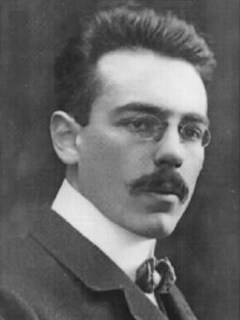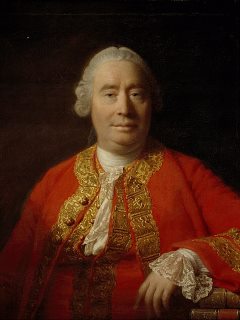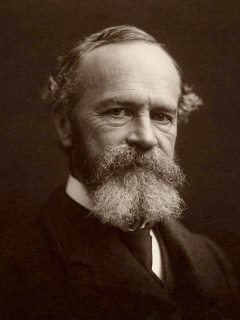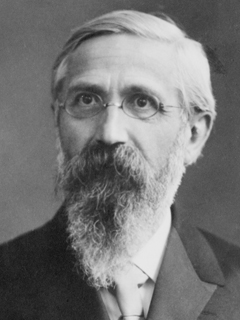Journal | Contributors | Profile
Adolf Bernhard Philipp Reinach
1883-1917
Described by Hedwig Conrad-Martius as "the phenomenologist in itself and as such", Reinach was a central figure of the early phenomenological movement, and a proponent of the realist phenomenology of the Munich Circle. His background consisted of a tripartite education: descriptive psychology (under Theodor Lipps), law (in Munich and Tübingen), and philosophy (under Husserl). Examples of the integration of all three of these aspects of his thought include his articles "The Apriori Foundations of Civil Law," "Toward the Theory of Negative Judgment," "On the Concept of Causality in the Criminal Law", and in his immense, continued interest in speech acts, states of affairs (Sachverhalt), and material necessity. Reinach died on the battlefield of WWI.
(2017). The Ambiguity of the Concept of Essence (1912/13). The New Yearbook for Phenomenology and Phenomenological Philosophy 15, pp. 299-303.
(2017). Three Texts on Ethics, ed. Lebech Mette, Smith James, Philosophia, München.
(2016)., A phenomenology of foreboding/foreseeing, in M. R. Kelly & B. Harding (eds.), Early phenomenology, London, Bloomsbury, pp. 25-28.
(2015). La premeditación: su significación ética y jurídica, Encuentro, Madrid.
(2015). Nesocialna in socialna dejanja. Phainomena 94-95, pp. 99-107.
(2014). Sobre fenomenología, Encuentro, Madrid.
(2012). Phénoménologie réaliste, Vrin, Paris.
(2010). Los fundamentos "a priori" del derecho civil, transl. M. Crespo, Comares, Granada.
(2009). On the concept of causality in the criminal law. Libertarian Papers 1, pp. 1-40.
(2009). Aprioryczne podstawy prawa cywilnego, transl. T. Bekrycht, Aureus, Kraków.
(2008). La visione delle idee: il metodo del realismo fenomenologico, Quodlibet, Macerata.
(2007). Anotaciones sobre filosofía de la religión, transl. J. L. Caballero Bono, Encuentro, Madrid.
(2005). O fenomenologii. Fenomenologia. Pismo Polskiego Towarzystwa Fenomenologicznego 3 (3), pp. 117-137.
(2004)., Concerning phenomenology, in D. Moran & L. Embree (eds.), Phenomenology: Critical concepts in philosophy I, London, Routledge, pp. 63-83.
(2004). Les fondements a priori du droit civil, transl. R. De Calan, Vrin, Paris.
(2001). Sobranie sočinenij, transl. V. Kurennoj, ed. Kurennoj Vitalij, Dom intellektual'noj knigi, Moskva.
(1997). Teoría del juicio negativo, transl. M. Crespo, Universidad Complutense, Facultad de Filosofía, Madrid.
(1994). The supreme rules of rational inference in Kant. Aletheia. An International Journal of Philosophy 6, pp. 70-97.
(1990). I fondamenti a priori del diritto civile, transl. D. Falcioni, Giuffrè, Milano.
(1989). Qu'est-ce que la phénoménologie?. Philosophie 21, pp. 37-60.
(1989). Sämtliche Werke: I. Die Werke, ed. Schuhmann Karl, Smith Barry, Philosophia, München.
(1989). Sämtliche Werke: 2. Kommentar und Textkritik, ed. Smith Barry; Schuhmann Karl, Philosophia, München.
(1987)., William James and pragmatism, in K. Mulligan (ed.), Speech act and Sachverhalt, Dordrecht, Nijhoff, pp. 291-298.
(1986). Introducción a la fenomenología, Encuentro, Madrid.
(1986). Introduction a la fenomenología, Encuentro, Madrid.
(1983). The apriori foundations of the civil law. Aletheia. An International Journal of Philosophy 3, pp. xxxii-142.
(1982)., On the theory of the negative judgement, in B. Smith (ed.), Parts and moments, München, Philosophia, pp. 315-377.
(1981). A contribution toward the theory of the negative judgment. Aletheia. An International Journal of Philosophy 2, pp. 9-64.
(1976). Kant's interpretation of Hume's problem. Southwestern Journal of Philosophy 7 (2), pp. 161-188.
(1973)., Bruchstück einer religionsphilosophischen Ausführung: Struktur des Erlebnisses - skeptische Erwägungen, in L. V. Brettler, The phenomenology of Adolf Reinach, Montreal, McGill University, pp. 250-251.
(1973)., Fragment of a treatise on the philosophy of religion, in L. V. Brettler, The phenomenology of Adolf Reinach, Montreal, McGill University, pp. 248-249.
(1973)., On the phenomenology of premonitions, in L. V. Brettler, The phenomenology of Adolf Reinach, Montreal, McGill University, pp. 242-44.
(1973)., Zur Phänomenologie der Ahnungen, in L. V. Brettler, The phenomenology of Adolf Reinach, Montreal, McGill University, pp. 245-247.
(1969). Concerning phenomenology. The Personalist 50 (2), pp. 194-211.
(1968). What is phenomenology?. The Philosophical Forum 1 (2), pp. 234-256.
(1966). What is phenomenology?. Philosophical Forum 1, pp. 231-256.
(1951). Was ist Phänomenologie?, 2nd edn., Kösel, München.
(1934). Los fundamentos aprioristicos del derecho civil, transl. J. L. Álvarez, Libreria Bosch, Barcelona.
(1928). Genshôgaku ni tsuite, transl. K. Ikegami, Iwanamishoten, Tokyo.
(1921)., Über das Wesen der Bewegung, in A. Reinach, Gesammelte Schriften, Halle (Saale), Niemeyer, pp. 407-461.
(1921)., Vortrag über Phänomenologie, in A. Reinach, Gesammelte Schriften, Halle (Saale), Niemeyer, pp. 379-405.
(1921). Gesammelte Schriften, ed. Stein Edith, Niemeyer, Halle (Saale).
(1914). Paul Natorps Allgemeine Psychologie nach kritischer Methode. Göttingische gelehrte Anzeigen 176, pp. 193-214.
Die apriorischen Grundlagen des bürgerlichen Rechtes, , , .
(1913). Die Überlegung; ihre ethische und rechtliche Bedeutung (Schluss). Zeitschrift für Philosophie und philosophische Kritik 149, pp. 30-58.
with Husserl, E. , Pfänder, A. , Geiger, M. , Scheler, M.F. (1913). Vorwort. Jahrbuch für Philosophie und phänomenologische Forschung 1 (1), pp. V-VI.
(1912). Die Überlegung; ihre ethische und rechtliche Bedeutung. Zeitschrift für Philosophie und philosophische Kritik 148, pp. 181-196.
(1911). Die obersten Regeln der Vernunftschlüsse bei Kant. Kant-Studien 16, pp. 214-233.
(1911). Kants Auffassung des Humeschen Problems. Zeitschrift für Philosophie und philosophische Kritik 141, pp. 176-209.
(1911)., Zur Theorie des negativen Urteils, in A. Pfänder (Hrsg.), Münchener Philosophische Abhandlungen, Leipzig, Barth, pp. 196-254.
(1910). William James und der Pragmatismus. Welt und Wissen. Hannoversche Blätter für Kunst, Literatur und Leben 198, pp. 45-65.
(1905). Über den Ursachenbegriff im geltenden Strafrecht, Barth, Leipzig.






